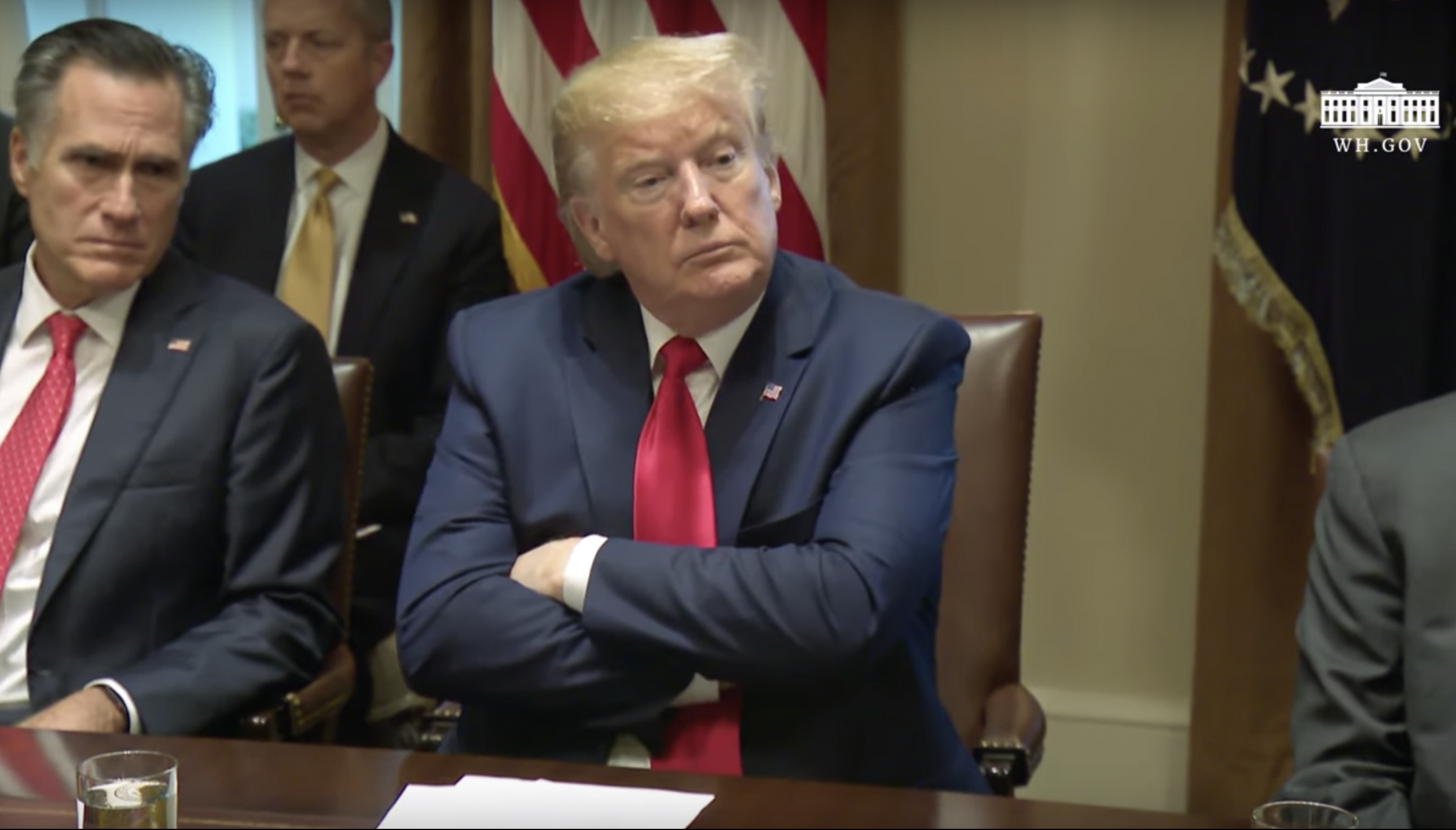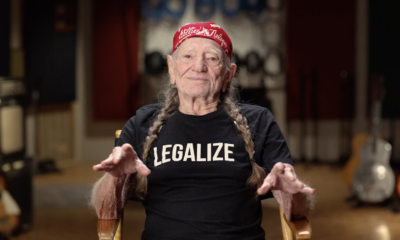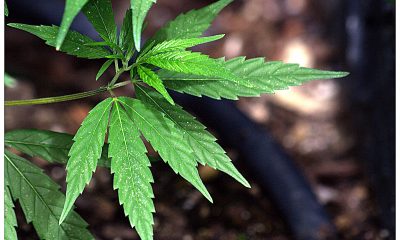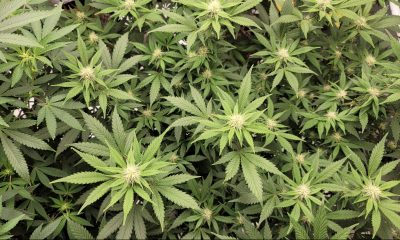Politics
Trump Picks Anti-Marijuana Congressman As New Chief Of Staff

On Friday, President Donald Trump ousted his acting White House chief of staff, Mick Mulvaney, and replaced him with Rep. Mark Meadows (R-NC).
Meadows has consistently opposed efforts to scale back the federal war on marijuana as a member of Congress.
Just last month, he was one of 12 GOP lawmakers to send a letter thanking a Senate committee chairman for delaying consideration of a House-passed bill to increase marijuana businesses’ access to banks.
“We remain opposed to liberalizing drug laws (including around banking), and we see these as some of our areas of greatest concern,” Meadows and his colleagues wrote. “We must protect our youth by preventing investment into companies that would prey upon them.”
Days after then-Attorney General Jeff Sessions revoked Obama-era guidance directing federal prosecutors to generally respect state marijuana laws in 2018, Meadows was one of only a small handful of lawmakers to defend the move.
“There comes a point where you allow states to affect federal policy instead of the other way around and I think that that’s troubling, he said in a Fox News Channel appearance. “So I support Attorney General Sessions in this move.”
When it comes to his record in Congress, Meadows has consistently voted against amendments and bills to scale back federal prohibition since becoming a member of the House of Representatives in 2013.
He opposed floor amendments to prevent the Department of Justice from interfering with the implementation of state marijuana legalization laws in 2015 and 2019, and also voted against more limited measures focused on protecting local medical cannabis polices in 2014 and 2015.
Meadows even opposed a 2015 amendment to protect children and families relying on very limited CBD-only state laws from Justice Department enforcement actions.
In 2014, 2015 and 2016, Meadows voted against amendments to let military veterans get medical cannabis recommendations from their doctors at the Department of Veterans Affairs.
On four occasions in 2014 and 2015, the congressman opposed measures to protect local industrial hemp programs from federal interference.
In 2014 and 2019, Meadows voted against legislation to protect banks from being punished by federal regulators for working with state-legal marijuana businesses.
In 2019, he opposed an amendment to remove roadblocks to scientific research on psychedelic drugs.
Meadows has never cosponsored legislation to reduce marijuana penalties, but he did sign on to a 2015 bill—the “No Welfare for Weed Act”—to clarify that people can not use food stamps to buy cannabis products.
Meadows’s appointment comes at a time when Trump’s position on marijuana remains unclear. While he has consistently voiced support for letting states enact their own cannabis laws when asked, his administration has taken a number of steps to undermine that position.
Beyond the move by Sessions’s to rescind the Obama marijuana memo, Trump’s budget proposals to Congress have requested the deletion of a separate provision that shields state medical cannabis laws from federal interference—the same one that Meadows has consistently voted against in the House. And when he has signed spending bills into law that contain the provision, the president has issued statements arguing that he has the right to ignore it.
Last month, a top Trump reelection campaign spokesman said that the administration’s position is that marijuana must be “kept illegal.”
Legalization advocates reacted to Meadows’s new appointment with varying degrees of concern.
“If the president wanted to send a signal that he opposes cannabis reform in 2020, tapping Mark Meadows to be the chief of staff is the way to do it,” Justin Strekal, political director for NORML, said. “With his long record of actively supporting marijuana criminalization and further discriminatory measures against cannabis consumers, Meadows embodies everything that is wrong with the prohibitionist mentality.”
The two major Democratic presidential candidates still left in the 2020 race have differing views on marijuana.
Sen. Bernie Sanders (I-VT) has pledged to enact nationwide cannabis legalization on his first day in office, though some legal experts have questioned whether a president has the power to do so.
Former Vice President Joe Biden, who as a senator led the charge to enact punitive drug laws, opposes legalizing marijuana but has endorsed more modest reforms such as decriminalizing possession, expunging past records and letting states set their own policies.
Don Murphy, federal policies director for the Marijuana Policy Project, said that he’s not worried that the anti-cannabis record of the new White House chief of staff bodes poorly for reform efforts, especially in light of the political opportunity presented by Biden’s decades of drug war advocacy if he is the Democratic nominee.
Meadows’s anti-marijuana votes in the House “were more consistent with those of the primary voting Republicans who sent him to Congress,” Murphy argued.
“In spite of his past record, Meadows will juxtapose Biden’s record on criminal justice and the drug war with Trump’s and it won’t be pretty,” he said. “He might not help us directly, but Meadows will pick at the scab that is Biden’s history and that will be good news for drug policy reformers.”
Ultimately, the personal cannabis views of the chief of staff may not matter much when it comes to administration policy.
“One thing we’ve learned over the past three years is that the only position that matters in the Trump Administration is Trump’s,” Murphy said.
Indeed, during his time a member of the House of Representatives, Mulvaney, the outgoing acting White House chief of staff, consistently voted for marijuana reform amendments—many of the same ones that his successor Meadows opposed—and also proactively signed onto several standalone cannabis bills.
But Mulvaney’s personal support for marijuana reform didn’t translate into positive administration actions on the issue. So while Meadows’s opposition could make somewhat of a difference in terms of what kind of information or decision points make their way to the president’s desk, his personal opposition to legalization might not necessarily mean that additional large-scale anti-cannabis actions are on the way from the administration.
This piece was first published by Forbes.
Photo courtesy of YouTube/White House.
















